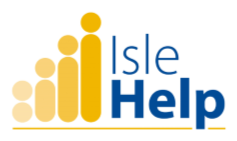About Fostering
Fostering is when a child is cared for by someone who is not a member of their own birth family. Fostering offers a safe, secure and warm home to a child when their own family are unable to.
Fostering is hugely rewarding and great fun. It offers you the opportunity to be the enthusiastic, resilient and supportive Foster Carers to make a real difference in a child’s life.
Why children are fostered:
Children are fostered for a variety of reasons. They may have suffered some type of neglect, trauma and/or abuse, and every one of them is in need of the security, warmth, care and support offered by our foster carers.
It’s important for Island children in care that they are fostered are supported by local foster carers; this allows children to stay in their local community, school and remain in their current environment and continue with established friendship groups.
Foster carers selection criteria:
The following information is here to help support you in to finding out if you can become a foster carer with the Council.
-
You need to be at least 21 years old. (There is no upper age limit; but you should have the potential to care for a child throughout their childhood and offer ongoing support into adulthood.).
- Single.
- In a relationship / married / same sex.
- Have a spare room – you do need a spare room to be able to foster.
- Working or not – you will need to consider if you will be able to balance your work commitments with looking after a child or children.
- Have a welcoming home – Owning your home is not essential to becoming a foster carer. During an assessment you will be helped to think about how to ensure your home is safe for any child placed with you.
- A UK resident – you must be resident in the British Islands for at least a year to apply to foster.
- Criminal convictions – You cannot apply to become an adopter or foster carer if you or anyone living in your household has a criminal conviction or has been cautioned for specified criminal offences against children and/or some sexual offences against adults. Checks are taken up through the Disclosure and Barring Service. We will discuss with you any convictions that are recorded against you.
For more information please go to the IOW Council’s pages on
Telephone Fostering Service on

